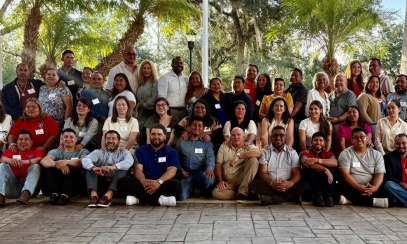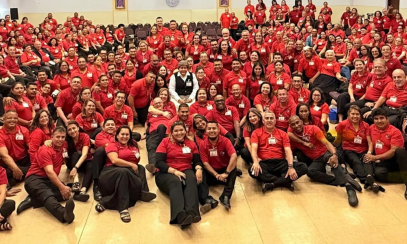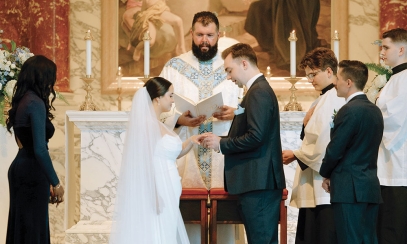
"I don't want to call my mother-in-law Mom.' " "My mom loves her - what's the problem?"
"I don’t want to call my mother-in-law ‘Mom.’"
Michelle says: My mother-in-law insists that I call her “Mom.” I am very close to my mother, and feel uncomfortable using that name for anyone else. Josh wants me to just give in to make his mother happy.
"My mom loves her – what’s the problem?"
Josh says: What’s the big deal? My mom always wanted a daughter and I think Michelle should be grateful Mom is so fond of her. Can’t she do this small thing to avoid hurting my mother’s feelings?
What do they do?
This situation makes me smile as it brings back memories of when Tom and I were newly married. I remember this same feeling of not wanting to call his mother “Mom.” It made me uncomfortable and it seemed to me, at the time, to be disrespectful to my own mother. Tom thought it perfectly fine and normal to use that endearing term and did not understand my hesitation. After a few visits at his parents, I talked with his mother about my feelings of addressing her as “Mom.” She gave me a hug of assurance and told me to do what was comfortable for me. For some mysterious reason, from that time on, it seemed like the right thing to do.
Tom, on the other hand, did not feel uncomfortable calling my mother “Mom” from the very beginning. Unlike Michelle, neither of our mothers “insisted” on us calling them by a particular title or name. There are several family dynamics at play in this situation and most are below the radar to Josh and Michelle.
For example, when a parent “insists” on their children (and their spouses) acting or behaving in a particular manner, it most often is a result of their own past experience and what they were asked to do. In this case, most likely Josh’s mother was asked by her mother-in-law to call her “Mom” and, even though she most likely felt uncomfortable about it, she complied to keep peace in the family.
Instead of doing what she felt right, Josh’s mother simply succumbed to her mother-in-law’s wishes. Michelle would be doing herself and her mother-in-law a great service in the long run by not complying with her mother-in-law’s wishes until she feels comfortable – if ever.
An important dynamic here is the process of how Josh and Michelle should approach the subject with Josh’s mother. It would be a mistake for Michelle to just give in to make Josh’s mother happy; that is a short-term fix that could have long-term consequences for all members of the families. Without doubt, we all desire to have a good relationship with our immediate family and our in-laws and our extended families.
However, the most important relationship is between Josh and Michelle. How does this issue affect their relationship? Josh’s desire to “just go along with it to make Mother happy” runs counter to his first allegiance, his primary concern, which is to his wife, Michelle. It is apparent that Josh and Michelle need to have a few more conversations focused on this topic. Start with exploring the feelings both have concerning this subject. Then, Josh needs to introduce the matter to his mother; it is not Michelle’s responsibility.
We would like to add that parents also have a responsibility to make adjustments. Sometimes it takes the newly married couple to remind them of that fact.
Deacon Tom and JoAnne Fogle help prepare couples for marriage.



